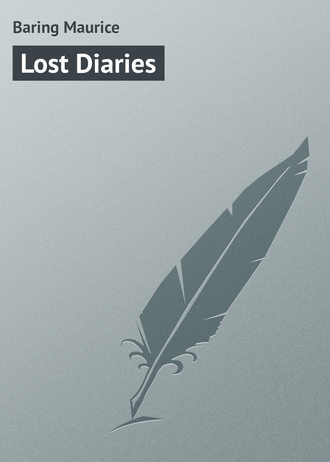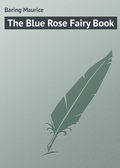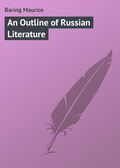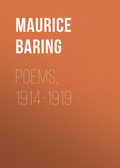
Maurice Baring
Lost Diaries
XIII
FROM THE DIARY OF WILLIAM THE CONQUEROR
Rouen, 1066. – Disquieting news from London. My friend, benefactor and relation, my brother Sovereign, Edward of England, has again had one of his attacks. It comes, I am sure, from not eating meat. Were anything to happen to him, I should be obliged to go over to London at once and settle as to the carrying on of the Government with Harold. Nothing could be more inconvenient at the present moment. Have the utmost confidence in Harold; but I fear the influence of the English nobility. I like the English; but they are not to be trusted in foreign politics. They are naturally perfidious, and they don't know it. They think they are more virtuous than other people; or rather that they are exempted from the faults and the vices which are common to us all. The European situation seems unsatisfactory.
Among other things Father Anselm writes that a certain party among the Englishwomen want to be admitted to the Witenagemot. The majority of the women are against it. The agitators sent a deputation to Westminster, but the King said it would not be according to the precedents to receive them. They were so annoyed at this that they made a dastardly attack on the beautiful old Druid Temple of Stonehenge, almost completely destroying it. F. Anselm says only a few blocks of stone are left, and that the place is unrecognisable.
The ringleaders were taken and claimed the ordeal by fire and the matter was referred to the Archbishop of Canterbury, who said that it was not a matter to be dealt with by ordeal. (Quite right!) He put the case into the hands of a select body of matrons, chosen from all classes. These decided that the offenders should be publicly whipped by women, and sent home. This was done, much to the satisfaction of everybody.
Rouen. – Heard Mass and went out hunting. Excellent sport. Shot a fox and six thrushes. Had thrush-pie for dinner. Find it difficult to get on horse-back without aid.
Rouen. – Received a letter from the Pope. He says that should anything happen to King Edward – he is, of course, far from suggesting such a thing, but one must take everything into consideration – I must be very firm about claiming the succession. H.H. says that although, of course, it would be indelicate for him to raise the question just now, he knows it is the King's wish that I should succeed him. He seems to think Harold may give trouble. But Harold is bound to me by oath. Also I saved his life.
Rouen. – Took William out hunting. His red hair frightens the ducks. Have told him over and over again to get a close-fitting green cap. The boys are always quarrelling. I don't know what is to be done with them. Robert broke his new battle-axe yesterday in a fit of passion.
My only consolation is that Henry is really making some progress with his tutor. He last learnt the alphabet as far as the letter F.
Rouen. – A fisherman arrived last night from Southampton with the news that King Edward is dead. The news, he said, was confirmed by the appearance of a strange star with a tail to it in the sky. I have questioned the courier and gathered he had only got the news at second-hand. The rumour is probably baseless.
Rouen. – The regular courier did not arrive this evening. The bag was brought by an Englishman. The official bulletin states that the King is slightly indisposed owing to a feverish cold, which he caught while inspecting the newly-raised body of archers, in the New Forest. A private letter from the archbishop tells me, in strict confidence, that the King's illness is more dangerous than people think. The children again quarrelled to-day. Matilda, as usual, took Henry's part, and said I was to blame. These domestic worries are very trying at such a critical moment. As a matter of fact, Henry teases his elder brothers, and boasts to them of his superior scholarship; they retaliate, naturally enough, by cuffing the boy, who complains at once to his mother. Since Henry has mastered the rudiments of the alphabet, his conceit has been quite beyond bounds. Of course, I admit it is clever of him. He is a clever boy. There is no doubt about that, but he shouldn't take advantage of it.
Rouen. – Again the regular courier has not arrived. The bag again brought by an Englishman. According to a bulletin the King is going on well. Received a very friendly note from Harold, putting Pevensey Castle at my disposal, should I visit England in the autumn – and suggesting sport in the New Forest.
Rouen. – Messenger arrived direct from London, via Newhaven. He says the King died last week, and that Harold has proclaimed himself King. Matilda said this would happen from the first. I think there can be no doubt that the news is authentic. The messenger, who is an old servant of mine, is thoroughly to be trusted. He saw the King's body lying in state. This explains why the regular messengers have not arrived. Harold had them stopped at the coast. This, in itself, is an unfriendly act. Matilda says I must invade England at once. Think she is right. But wish war could be avoided. Have written to the Pope asking for his moral support. Invasion a risky thing. Discussed the matter with General Bertram, who is an excellent strategist. He says he can devise fifty ways of landing troops in England, but not one way of getting them out again. That is just it. Supposing we are cut off? The English army is said to be very good indeed.
Rouen. – Invasion of England settled. Must say have great misgivings on the subject. If we fail, the King of France is certain to attack us here. Matilda, however, won't hear of any other course being taken. Have privately sent a message to Harold proposing that we should settle the matter in a friendly fashion – I offer him nearly all Wessex, Wales and Scotland and the North – I taking the rest of the Kingdom, including London and Winchester. His situation is by no means entirely enviable. His brothers are certain to fight him in the North, and the King of Norway may also give trouble.
Rouen. – Received letter from the Pope entirely approving of invasion. Sends me back banner, blessed. Received a letter from Harold also. Very insulting. Answers vaguely and commits himself to nothing. Ignores the past. Seems to forget I saved him from shipwreck and that he solemnly swore to support my claims. Seems also to forget that I am the lawful heir to the English throne. The crowning insult is that he addressed the letter to Duke William the Bastard.
Have ordered mobilisation to take place at once. The war is popular. Matilda and I were loudly cheered when we drove through the market place this afternoon. War will be a good occupation for the boys. Robert wants to stop here as Regent. Do not think this wise.
Hastings. – Very disagreeable crossing. Took medicine recommended by Matilda (nettle leaves and milk and cinnamon), but did no good. Harold apparently defeated his brother in the North. Expect to fight to-morrow. Temper of the troops good. Terrain favourable, but cannot help feeling anxious.
London. – Everything sadly in need of thorough reorganisation. Have resolved to carry out following initial reforms at once: —
1. Everybody to put out their lights by 8. Bell to ring for the purpose. The people here sit up too late, drinking. Most dangerous.
2. Enroll everybody in a book. Make it compulsory for the leeches to attend the poor, and dock serfs of a part of their wage, in order to create a fund for paying the leeches. (Think this rather neat.)
Shall tolerate no nonsense from the women. Matilda agrees that their complaints are ridiculous.
News from Normandy disquieting. Robert seems to be taking too much upon himself. Something must be done.
Going next week to New Forest to hunt. Very fine wild pony hunting there.
XIV
FROM THE DIARY OF MARY, MRS JOHN MILTON (née POWELL)
Aldersgate Street, July 1, 1643. – House-keeping not quite such fun as I thought it would be. John is very particular. He cannot eat mutton, or any kind of hashed meat. He compares the cooking here unfavourably with that of Italy. He says the boys in the school are very naughty and that, during the Latin lesson this morning, one boy, called Jones minor, put a pin on his chair, just before he sat down on it. I couldn't help laughing; and this made John cross. He is thinking of writing a poem about King Arthur (sic) and the burnt cakes.
July 6. – John has begun his poem. He makes it up during meals, which makes him forget to eat, and makes the meal very gloomy; he writes it down afterwards. He read me a long piece of it last night; but as it is in Latin I did not understand very much of it.
July 7. – John and I quarrelled. It was about Jones minor. John announced the news of a reported rebel success during the boys' Greek lesson, and told the boys to give three cheers for the rebel army, which, of course, they all did, as they would never dare to disobey, except one brave hero, I call him, called Jones minor (the son of a tinker, bless him!), who called out as loud as he could: "Long live King Charles and death to all traitors!" John told him to repeat what he had said, and he did, and John caned him. I think this was very wrong on John's part, because, of course, the rebels are traitors. I took the part of the boy, and this made John angry. Then I said: "Of course, if all loyalists are so wicked, why did you marry me? My father is loyal and I am heart and soul for the King and the Church." John said that women's politics didn't count; but that the young must be taught discipline; that he was tolerant of all sincere opinion, however much he disagreed with it; but that the boy had merely wished to be insolent, by flying in the face of public opinion and the will of the school, which was the will of the people, and therefore the will of God, merely to gain a cheap notoriety. I said that probably all the boys felt the same, but didn't dare say so, as they knew that he, John, was on the other side. John said there are only seven "malignants" in the school. He said the boys were very angry with Jones minor and kicked him. I said they were a set of cowards. John said did I mean he was a coward, and quoted Greek. I said I didn't understand Greek and didn't want to. "That comes from your false education," said John; "your parents deserve the severest blame." I said that if he said anything against my parents, I would leave the house, and that my father knew Latin as well as he did. John said I was exaggerating. I said that I had often heard Papa say that John's Latin verses were poor. John said when his epick on King Alfred and the Lady of the Lake would be published, we should see who knew how to write Latin. I said: "Who?" John said I was flighty and ignorant. I said I might be ignorant, but at least I wasn't a rebel. John said I was too young to understand these things, and that, considering my bringing up, I was right to hold the opinions I did. When I was older I would see that they were false. Then I cried.
July 6. – We made up our quarrel. John was ashamed of himself, and very dear, and said he regretted that he had used such vehement language. I forgave him at once.
July 9. – We had some friends to dinner. Before we sat down, John said: "We will not mention politicks, as we might not all agree and that would mar the harmony of the symposium." But towards the end of dinner, I drank the King's health, quite unwittingly and from force of habit, forgetting —
This made John angry and led to a discussion, some of our guests taking the King's part and others saying that he was quite wrong. The men became very excited, and a young student, called Wyatt, whom John had invited because he is very musical and cultivated, threw a glass of wine in the face of Mr Lely, the wine-merchant, who is a violent rebel, and this broke up the party. John said that all "malignants" were the same; and that they none of them had any manners; that they were a set of roystering, nose-slitting, dissolute debauchees. When I thought of my dear father, and my dear brothers, this made me very angry; but I thought it best to say nothing at the time, as John was already annoyed and excited.
July 10. – John says he can't make up his mind whether to write his epick poem in Latin or in Hebrew. I asked him whether he couldn't write it in English. He told me not to be irrelevant. The city is very dreary. John disapproves of places of public amusement. He is at the school all day; and in the evening he is busy thinking over his poem. Being married is not such fun as I thought it would be, and John is quite different from what he was when he courted me in the country. Sometimes I don't think he notices that I am there at all. I wish I were in the country.
July 11. – John was in good temper to-day, because a scholar came here yesterday who said he wrote Italian very well. He asked me for my advice about his epick poem – which I thought was the best subject for an epick, King Arthur and the Cakes or the story of Adam and Eve. This made me feel inclined to laugh very much. Fancy writing a poem on the story of Adam and Eve! Everybody knows it! But I didn't laugh out loud, so as not to hurt his feelings, and I said "Adam and Eve," because I felt, somehow, that he wanted me to say that. He was so pleased, and said that I had an extraordinarily good judgment, when I chose. We had some cowslip wine for dinner which I brought from the country with me. John drank my health in Latin, which was a great favour, as he never says grace in Latin, because he says it's Popish.
July 14. – John is thinking of not writing an epick poem after all, at least not yet, but a history of the world instead. He says it has never been properly written yet.
July 15. – John has settled to translating the Bible into Latin verse. I am afraid I annoyed him; because when he told me this, I said I had always heard Papa say that the Bible was written in Latin. He said I oughtn't to talk about things which I didn't understand.
July 28. – I am altogether put about. There are two Irish boys in the school; one is called Kelley and comes from the North, and the other is called O'Sullivan and comes from the South. They had a quarrel about politicks and O'Sullivan called Kelley a rebel, a heretick, a traitor to his country, a renegade, a coward and a bastard; and Kelley said that O'Sullivan was an idolater and a foreigner, and ended up by saying he hoped he would go and meet the Pope.
"Do you mean to insult the Pope before me?" said O'Sullivan.
"Yes," said Kelley, "to hell with your Pope."
I could hear and see all this from my window, as the boys were talking in the yard.
Kelley then shouted, "To hell with the Pope!" as loud as he could three times, and O'Sullivan turned quite white with rage, but he only laughed and said quite slowly:
"Your father turned traitor for money, just like Judas." Then the boys flew at each other and began to fight; and at that moment John, who was thinking over his epick poem in the dining-room, rushed out and stopped them. Then he sent for both the boys and asked them what it was all about, but they both refused to say a word. Then John sent for the whole school, and said that unless some boy told him exactly what had happened, he would stop all half-holidays for a month. So Pyke, a boy who had been there, told the whole story. John caned both O'Sullivan and Kelley for using strong language.
In the evening Mr Pye came to dinner, from Oxford. He teaches the Oxford boys physic or Greek philosophy; I forget which. But no sooner had we sat down to dinner than he began to abuse the rebels, and John, who was already cross, said that he did not suppose Mr Pye meant to defend the King. Mr Pye said he had always supposed that that was a duty every true-born Englishman took for granted; and John became very angry. I never heard anybody use such dreadful language. He said the King was a double-faced, lying monkey, full of Popish anticks, a wolf disguised as a jackass, a son of Belial, a double-tongued, double-faced, clay-footed, scarlet Ahithophel, and Mr Pye was so shocked that he got up and went away. I said that people who insulted the King were rebels, however clever they might be, and that it was dreadful to use such language; and when I thought of his beating those two little boys this morning for using not half such strong language it made me quite mad. John said that I was illogical. I said I wouldn't hear any more bad language; and I ran upstairs and locked myself in my room.
August 1, Oxfordshire. – I have come home. I couldn't bear it. John was too unjust. Whenever I think of those two Irish boys and of John's language at dinner, my blood boils. Went out riding this morning with the boys. Papa says the war news is better, and that the rebels will soon be brought to heel.
XV
FROM THE DIARY OF MARK ANTONY
Alexandria (undated). – The reception went off very well. The Queen came to meet me by water in her State barge. She is different from what I remember her long ago, when I caught a glimpse of her in Rome. Then she was rather a colourless young girl, who had the reputation of being very well read, and rather affected. But now … when you look at her face and you look away, you see green from the flash, as though you had been staring at the sun. She dazzles and blinds you. I received her in the market place. Her curtsey was a miracle of grace. She was very civil and dignified. After I had received her in the market place, I went to her palace. Such is the etiquette. I invited her to supper; but she insisted on my being her guest. I accepted. Supper in her palace. Semi-state, as the court is in mourning for Archilaus, the King of Cappadocia's eldest son, the Queen's first cousin. The ladies in waiting wore gold ornaments only. One of them, Charmian, pretty. The Queen, dropping all formality, was very lively and excellent company. The supper was good (the boars well roasted) and not so stiff as those kind of entertainments are as a rule.
After supper we had music and some dancing. Egyptian Bacchanals, who did a modern thing called Ariadne in Naxos. Very noisy and not much tune in it; but the dancing good, although hardly up to the Scythian standard.
Mardian, who has a fine contralto voice (he has been admirably trained), sang a piece from a ballet on the siege of Troy arranged by Æschylus. Very good. I like those old-fashioned things much better. They say it's conventional and out of date; but I don't care. The Queen told me in confidence that she quite agreed with me, but that even classical music bored her, so after we had listened to one or two odes, she asked Mardian to sing something light, some songs in dialect, which he did. Very funny, especially the one which begins:
"As I was going to Brindisi, upon a summer's day."
We made him sing that one twice. The Greeks know how to be witty without even being in the least vulgar.
Alexandria, three weeks later. – Time has passed very quickly. Everybody is being so kind, and the Queen has taken immense pains to make everything a success. Most amusing improvised banquet in fancy dress last night. The Queen disguised as a fish-wife. She made me dress up, too. I put on a Persian private soldier's uniform. After supper we went into the town, in our disguises. Nobody recognised us, and we had the greatest fun. I threw pieces of orange-peel on the pavement. It was too comic to see the old men trip up over them. Then we went into a tavern on the first floor, and ate oysters. The Queen heated some coppers at the fire, and, after putting them on a plate with a pair of pincers, threw them out of the window. It was quite extraordinarily funny to see the beggars pick them up and then drop them with a howl! I don't think I ever laughed so much! The Queen has a royal sense of humour. And I who thought beforehand she was a blue-stocking! It shows how mistaken one can be.
Alexandria. – Time seems to fly. No news from Rome. Wish the Queen would not be quite so ostentatiously lavish on my account. Eight wild boars for breakfast is too much. And the other night at supper she wasted an immense pearl in drinking my health in vinegar. This kind of thing makes people talk. She is wonderfully witty. She can mimic exactly the noises of a farmyard. Nothing seems to tire her, either. She will sit up all night and be ready early the next morning to go out fishing, sailing or anything else. She must have a constitution of steel. Wonderful woman!
Alexandria, later. – News from Rome. Fulvia is dead: must go at once.
Rome, a month later. – Engaged to be married to Octavia, Cæsar's sister, a widow. Purely a political alliance. Cleopatra is sure to understand the necessity of this. It is a great comfort to think that she is reasonable and has a real grip of the political situation.
Athens, a month later. – Political situation grows more and more complicated. Octavia is very dutiful and most anxious to please. Do not think the climate here agreeable. The wind is very sharp and the nights are bitterly cold. Never did care for Athens.
Think that if I went to Egypt for a few days I could (a) benefit by change of air, (b) arrange matters with the Eastern Kings. Cæsar and Lepidus are trying to do me in the eye.
Athens, a day later. – Octavia has very kindly offered to go to Rome, so as to act as a go-between between myself and Cæsar. She says she is quite certain it is all only a misunderstanding and that she can arrange matters. Thought it best not to mention possibility of Egyptian trip, as I may not go, after all.
Alexandria. – Back here once more after all. Doctors all said change of air was essential, and that the climate of Athens was the very worst possible for me, just at this time. They said I should certainly have a nervous breakdown if I stayed on much longer. Besides which, it was absolutely necessary for me to be on the spot, to settle the Eastern Question. It is now fortunately settled. Cleopatra delighted to see me; but most reasonable. Quite understood everything. She did not say a word about Octavia. Reception in Alexandria magnificent. Ovation terrific. Shows how right I was to come back. Settled to proclaim Cleopatra Queen of Egypt, Lower Syria, Cyprus and Lydia. Everybody agrees that this is only fair.
Alexandria. – Public proclamation in the market place. Settled to keep Media, Parthia and Armenia in the family, so divided them among the children. Ceremony went off splendidly. Cleopatra appeared as the Goddess Isis. This was much appreciated, as it showed the people she really is national. The cheering was terrific.
Staying with us at present are the King of Libya, the King of Cappadocia, the King of Paphlagonia, the King of Thrace, the King of Arabia, the King of Pont, the King of Jewry, the King of Comagena, the King of Mede, and the King of Lycaonia. Question of precedence a little awkward. Herod, the King of Jewry, claimed precedence over all the other Kings on the grounds of antiquity and lineage. The King of Mede contested the claim, and the King of Arabia said that he was the oldest in years. There is no doubt about this, as he is 99. It was obvious the first place belonged to him. Question very neatly settled by Cleopatra. That they should rank according to the number of years they have reigned. She said this was the immemorial Egyptian custom, established by the Pharaohs and written out very carefully on a step of the great Pyramid. Everybody satisfied. King of Arabia takes precedence, but not on account of his age. Herod still a little touchy, but had to give in.
Played billiards with Cleopatra. Gave her 20. Won with difficulty. Cæsar is certain to make war on us. Have written to Octavia explaining everything fully.
In Camp near Actium. – Nothing doing. One wonders whether Cæsar means to fight after all. The mosquitoes are very annoying. Impossible to get any milk.
In Camp near Actium, later. – Cleopatra has arrived. She is used to camp life and does not mind roughing it. Everybody advises me to fight on land and not by sea, but Cleopatra and myself think we ought to fight by sea. Cæsar has taken Toryne. We have sixty sail. The thing is obvious; but soldiers are always prejudiced. Enobarbus worrying me to death to fight on land.
Cleopatra won't hear of it, and I am quite certain she is right. A woman's instinct in matters of strategy and tactics are infallible; and then – what a woman!
Alexandria, later. – Very glad to be home again. Cleopatra was perfectly right to retreat. Played billiards. Gave Cleopatra 25. She beat me. She will soon be able to give me something. She is a surprising woman. Last night the Greek envoy dined. Too clever for me, but Cleopatra floored him over Anaxagoras. Wonderful woman! She sang, or rather hummed, in the evening a little Greek song, the burden of which is
Ἐγὼ δὲ μόνα καθεύδω.
I cannot get the tune out of my head.







